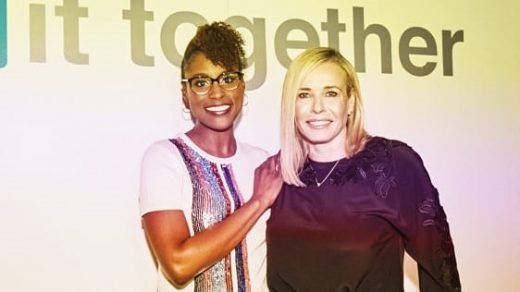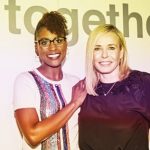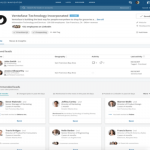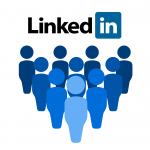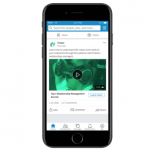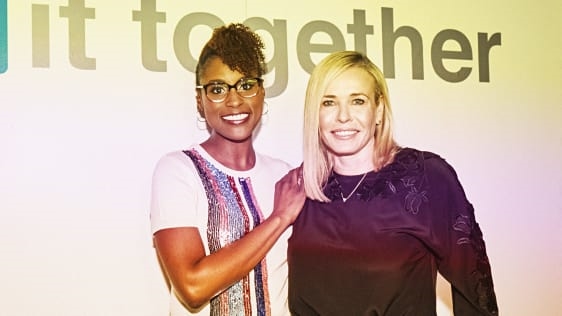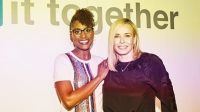Issa Rae Finally Has The Power–And She’s Not Letting Go
“This is such a great time period for young voices of color,” Rae, 33, tells Fast Company. “People are finally listening.”
Issa Rae is adjusting her microphone backstage while discussing what could be viewed as a cultural renaissance: the popularity of minority-fronted projects such as Black Panther, Master of None, and of course, her own groundbreaking HBO show, Insecure. Decked in a colorful sequin-adorned shirt and mauve skinny jeans, the multi-hyphenate businesswoman looks the epitome of casual chic–a poised powerhouse who can rattle off passionate pleas for industry change while simultaneously cracking a self-deprecating joke.
In a few minutes, Rae will greet a packed house of young female careerists for a LinkedIn panel on women and success with Chelsea Handler. There, she will discuss not only the opportunities she created for herself, but opportunities available to her peers: fellow creatives of color.
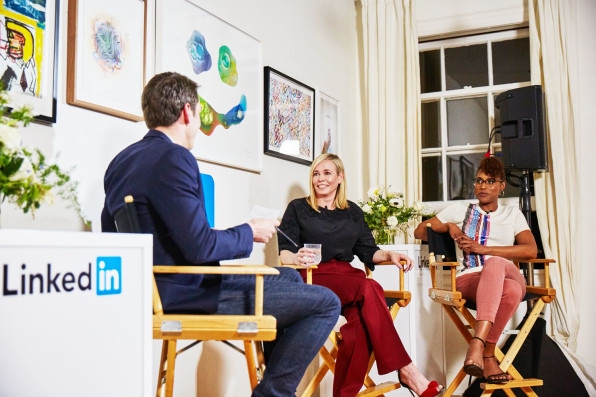
[Photo: courtesy of LinkedIn]
The actress/writer/director/producer knows too well the struggles that can overwhelm minorities in the entertainment industry. She has described the rejections she encountered from executives who claimed there wasn’t an audience for her comedy about black women living in south L.A. (and the many naked male butts they encounter). Today, Insecure is going on its third season and has been twice nominated for a Golden Globe. HBO also recently picked up two more projects from Rae.
“It feels like we’re taking the reins and we’re not letting go,” says Rae. “We’re realizing how powerful our voices are.”
Shows like Insecure serve as a foundation to inspire others to pursue their projects and push executives to be more generous with new voices. But people of color are still vastly underrepresented. “The content has always been there. It’s just the trust hasn’t,” says Rae. “There’s a lot more work to do.”
Diversity within production and writing rooms sparked recent conversations, with Frances McDormand, during her Oscar acceptance speech, calling for inclusion riders, a contract clause requiring filmmakers to meet diversity benchmarks. Currently, less than 5% of TV writers rooms employ a single black employee, reports the organization Color Of Change. The Insecure writing staff is already overwhelmingly diverse, though Rae supports implementing such strategies across the industry.
“I think it’s great that white people are catching up,” laughs Rae during the panel. “It’s sad that you have to guilt people into doing what’s right, but it is right.”
The hope is that such public outcries will give way to communal pressure, or at the very least, seep into Hollywood’s consciousness. (On Wednesday, actor Michael B. Jordan announced his company, Outlier Society Productions, would adopt inclusion riders.) And not just because it’s “right,” but also because it’s just good business.
“It’s been such an intentionally exclusive industry for such a long time and you have people in positions of power acting like they know what sells. In some cases, they do, but in some cases, they’re so outdated and their ideals so archaic, that you need to force them to think differently,” says Rae.
The Insecure star admits she constantly brings up the need for diversity within her own production teams. “It’s annoying . . . it takes effort.”
As an employer, Rae now also finds herself tackling issues like equal pay. On her staff, for example, men routinely asked for raises, while women do not. She sympathizes. “Working in the corporate world, I never asked for a raise . . . So I make sure to empower [employees] to ask.”
Rae makes a point of helping people just starting out in entertainment. She co-founded Color Creative, an organization raising awareness and guiding emerging women and minority writers. Holding the door open, she says, is the first step in combating a major pet peeve: industry insiders claiming they can’t find qualified minorities.
In many ways, Rae looks to emulate Shonda Rhimes, the mega-producer who championed her at the start of her TV career. In 2013, the two worked together on a pilot titled I Hate L.A. Dudes for ABC. The network passed, but the experience shaped Rae, and she feels indebted to the Scandal hitmaker on multiple levels.
“[Shonda Rhimes] made networking executives realize that black people watch TV–and they want to see themselves,” says Rae. “She was also one of the first people to take a chance on me . . . I love how many doors she has opened and has kept open.”
In addition to her television work, Rae is also a CoverGirl, Samsung Mobile spokesperson, and upcoming CFDA Awards show host. Her relatable brand of brash humor landed her in a sphere alongside entertainment leaders like Lena Dunham and Tina Fey. Moving forward, she intends to cross into even more mediums (although she wouldn’t detail which) while also devoting efforts to social causes. She talks about empowering friends to run for office or getting into environmental activism.
“There are so many things I want to do outside of the entertainment industry,” says Rae. “I have my sights set on a lot.”
Rae says she’s often motivated by fear that she’ll never have such opportunities again, or that her audience will move on. But that’s also what excites her. “I love to prove people wrong, that’s what drives me,” she adds. And while Rae has a loose idea of how she envisions her career trajectory, she doesn’t quite employ a timeline or hard deadlines for herself.
Rae points to a vision board party she attended five years ago, in which she was forced to glue together a collage of her future. “I was like, ‘This is so stupid, I’m cutting out magazine pictures like I’m in second grade,” she says with a laugh. The finished product depicted wishful career achievements but also personal goals, like what color she wanted to dye her hair.
She didn’t think much of it, but last year, Rae dug up the board and gasped: “All these things happened,” she reflects. “I like to put things out there.”
So where does Rae see herself next? Will she become the next Shonda Rhimes? Or Ryan Murphy? Rae envisions herself as a hybrid.
“I would love to be a combination of Oprah, Diddy, and Ellen,” she says, laughing. “Those three in terms of what they’ve been able to do with their careers. I feel that I belong here. I know how hard I’ve worked. I’ve paid certain dues. I know that this is what I want to do.” And that’s taught her one of the most important lessons of all. “No one is going to convince me that I’m ‘lucky’ to be here.”
(24)

